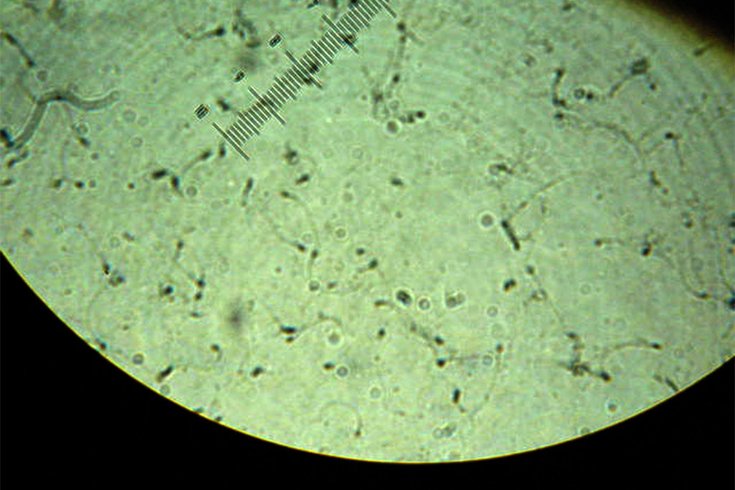
October 25, 2018
 GreenFlames09/via Flickr Creative Commons
GreenFlames09/via Flickr Creative Commons
Sperm cells are seen under a microscope.
Many of us are fortunate enough not to have to think about this reality, but many young boys who receive cancer treatment prior to puberty suffer infertility. This is due to chemotherapy and radiation killing immature stem cells that eventually develop into mature sperm.
These patients currently do not have options for preserving their future fertility.
Two physician-scientists at Children’s Hospital of Pennsylvania (CHOP), Dr. Jill Ginsberg, a pediatric oncologist, and Dr. Thomas Kolon, a pediatric urologist, collaborated with Sandra Ryeom, Ph.D., an expert in cancer research from the Perelman School of Medicine at the University of Pennsylvania, for a research paper on this issue published in Nature Communications.
“We have never had any fertility preservation options for prepubescent boys," said Ginsberg, who directs CHOP’s Cancer Survivorship Program in a release. "These findings are a great first step forward for our youngest patients.”
RELATED READ: A new study finds that eating organic foods has major benefit in cancer prevention
Kolon and Ginsberg have been a part of an experimental effort that involves taking a small biopsy from a child’s testis before cancer treatment. The CHOP-Penn team has discovered that cells from the testes provide an environment that allows human sperm producing stem cells (SSC) to survive and thrive. By testing those findings in infertile male mice, researchers enabled those mice to produce sperm and father offspring.
“Our next step is to determine whether we can re-inject or engraft the expanded SSCs into patients after they are cancer free,” Ryeom said.